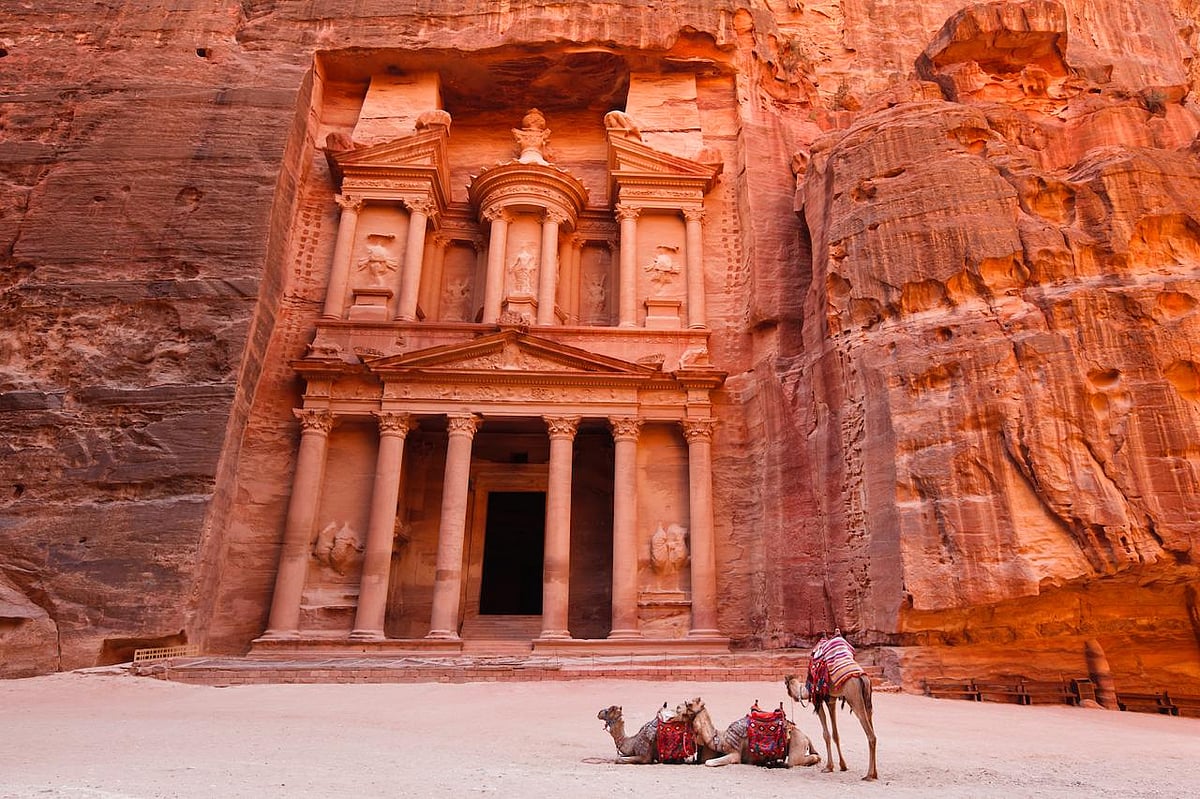Jordan tourism thrives amid regional turmoil; shifts focus to GCC visitors
Jordan sees an overall increase in tourism, adapting to new visitor demographics

Dubai: Jordan’s tourism sector is reporting a surprising overall increase in visitor numbers for 2024, despite ongoing regional instability and geopolitical challenges.
The country’s tourism ministry announced earlier this month that Jordan recorded its best-ever six months for tourism this year, attracting 2.7 million international overnight visitors – an impressive feat, especially given that last year, Jordan’s tourism industry was significantly impacted by the ongoing conflict in Gaza and heightened regional tensions.
The Director-General of the Jordan Tourism Board (JTB), Dr Abdul Razzaq Arabiyat, said that a significant surge in arrivals from the GCC and other Arab nations has offset a decline in Western tourists.
“Due to Jordan’s geographic location, being between these two countries (he said, referring to Israel and Iran, who recently suffered escalating tensions), people may be hesitant to come to the destination,” said Dr Arabiyat.
“The situation in Gaza affected the tourism sector, but to mitigate and overcome this, what we did was try to convey the right message about the country: that Jordan is a safe country, business as usual. We are the calm house between the noisy neighbours, as you know,” Dr Arabiyat told Gulf News.
UAE, GCC tourists boost demand
Israel’s ongoing war in Gaza has led to perceptions of insecurity and temporary airline cancellations, disrupting tourism businesses in Petra, the Dead Sea, Wadi Rum, and Aqaba. “The challenge here is that, you know, the main supply chain in Jordan—Petra, Dead Sea, Wadi Rum, Aqaba—they are depending heavily on tourists who are coming from Europe and the United States,” he said.
According to Dr Arabiyat, these products are already designed to cater to European and US tourists. “After the Gaza War and the Israeli-Iranian war, airlines stopped flying to Jordan. This sector has been particularly affected, especially in southern Jordan,” he said.
However, Jordan was able to compensate for the drop in numbers of tourists from Europe and the United States, who represent 18 per cent of the country’s overnight stays. However, this downturn was mitigated by a “25 per cent increase” in tourists from GCC and other Arab countries. Dr. Arabiyat explained that while this maintained overall visitor numbers and tourism receipts, it presented a different dynamic.
“The Arabs don't use the guides. They don't use the transportation. They don't go to the souvenir shops, and they don't go to Petra because they have the similarity of the, you know, the southern part of Jordan is desert," he said, highlighting the varying spending patterns and preferences of these new key markets, who often prefer Amman and the country's greener northern regions.
New source markets
Jordan ran a massive tourism campaign in an attempt to diversify its source markets. “Now we are going to Japan, to Australia, Indonesia, and India. Royal Jordanian is coming to open new routes from Delhi and Mumbai back to Amman. This will help us a lot to diversify our source markets,” he said.
Dr Arabiyat confirmed ongoing talks to resume flights with Ryanair and Wizz Air by October, alongside the introduction of new routes to Japan, Australia, Indonesia, and India. Royal Jordanian is set to commence operations from Delhi and Mumbai. Joint ventures with Qatar are also being explored for long-haul destinations.
Long-term growth
Tourism remains a "top priority" for the Jordanian government, contributing "almost 14 per cent of the GDP" and directly employing "60,000" people. Dr Arabiyat outlined a long-term vision to reach "more than 10 million overnight visitors" by 2033, focusing on "high-yield tourists" rather than mass tourism.
He emphasised Jordan’s "diversified product," encompassing historical sites like Petra and Jerash, adventure tourism (Jordan Trail), wellness (Dead Sea), religious sites for both Muslims and Christians, medical tourism, and MICE (Meetings, Incentives, Conferences, and Exhibitions) tourism.
Infrastructure
On infrastructure, Dr Arabiyat mentioned three airports and a growing number of transportation companies. Key investment priorities include enhancing connectivity between tourist sites with affordable transport, and building more three- and four-star hotels, particularly in Petra, Wadi Rum, and the Dead Sea, to complement existing luxury accommodations.
He offered investors "very attractive and healthy incentives," including waivers on customs and sales tax, as well as special income tax schemes for tourism projects.
Despite the recent temporary disruptions, including flight cancellations from the UAE, Dr Arabiyat expressed optimism for a rebound. "After June 12th, we start seeing the impact, because all the reservations are cancelled. But I can tell you, maybe the first of September, things will come back, start to come back to normal," he projected, citing strong forward bookings. For prospective visitors, Dr Arabiyat reiterated Jordan’s appeal: “Jordan is a diversified country, a year-round destination... If you want to see the world, come and see Jordan. You can see this biodiversity of scenery in Jordan. It’s unique, and we have a lot to offer.”
Sign up for the Daily Briefing
Get the latest news and updates straight to your inbox
Network Links
GN StoreDownload our app
© Al Nisr Publishing LLC 2026. All rights reserved.
